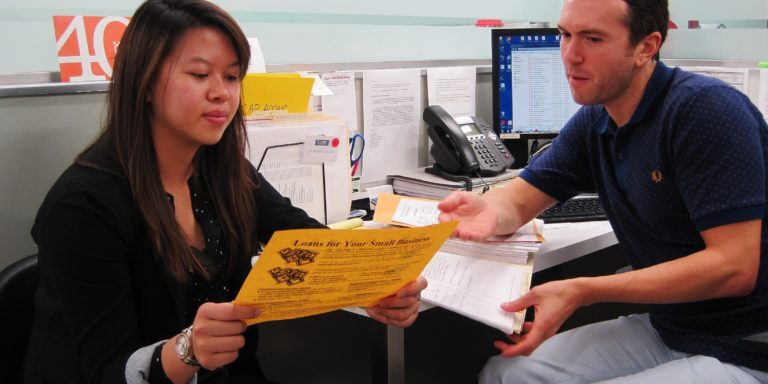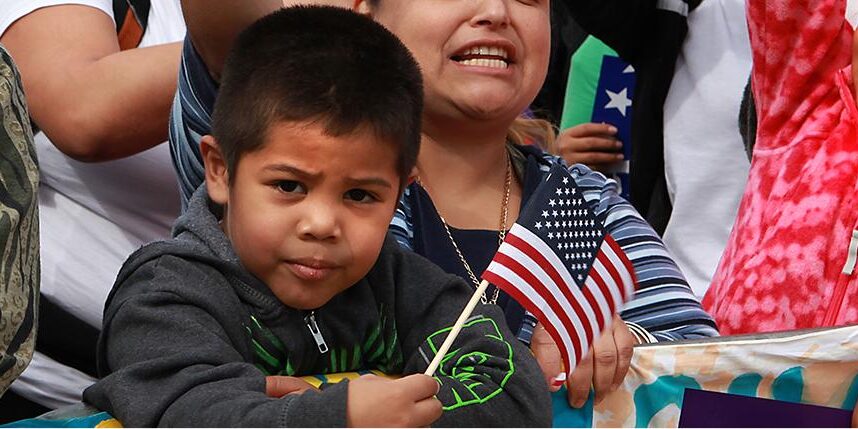
Center for American Progress
Gaps in the Debate About Asian Americans and Affirmative Action
Race-conscious admissions policies have been and are still necessary for all students of color, including Asian Americans, to combat long-ingrained inequities in higher education. Regardless of how the legal battle over affirmative action unfolds, institutions must be held accountable to ensure equitable access for all students of color.

Center for American Progress
The Incomplete Story of Asian Americans, Native Hawaiians, and Pacific Islanders
This report by Policy Analyst Farah Ahmad discusses some of the data available on Asian Americans. It then presents and explains the challenges associated with the data and offers policy recommendations to address them.

Asian American Legal Defense and Education Fund & The Sikh Coalition
One Step Forward, Half a Step Back
A Status Report on Bias-Based Bullying of Asian American Students in New York City Schools: This survey finds a significant gap between the promise of bias-free public schools and the day-to-day reality of Asian American students.

National Coalition of Asian Pacific American Community Development
Spotlight: Asian American and Pacific Islander Poverty
A demographic report on Asian American and Pacific Islander poverty in wake of recession authored by CAPACD reveals that the AAPI poor population grew faster than most other ethnic groups from 2007-2011, increasing by 38% to over 2 million.

HEALTHCARE.GOV
Healthcare Marketplace and Affordable Care Act resources in translation
This resource page, on the Healthcare.gov site, offers guidance on navigating the ACA and Marketplace updates in multiple languages, including Chinese, Gujarati, Hindi, Japanese, Korean, Tagalog, and Vietnamese. For additional assistance or materials, please call us today.

Office of Refugee Resettlement
Refugees and the Affordable Care Act
The ORR has produced a 6-minute video to introduce the Health Insurance Marketplace to refugees. It features refugee speakers and narrators discussing the benefits of the Affordable Care Act (ACA), insurance, and primary care. Available in English, Arabic, Kinyarwanda, Nepali, Sgaw Karen, and Somali.

Asian & Pacific Islander American Health Forum
Multilingual Public Health Alerts & Resources
APIAHF influences policy, mobilizes communities, and strengthens programs and organizations to improve the health of Asian Americans, Native Hawaiians, and Pacific Islanders. Their resources section includes translated releases for public health alerts.

Community Catalyst
The Path to a People-Centered Health System
This report, on next-generation health advocacy, is a starting point for the future of consumer health advocacy that equips consumer advocates to take on the challenges and opportunities of transforming our health system.

AAPIDATA.ORG
Infographics on People, Policy, and Civic Life in the AAPI Community
A comprehensive resource for infographics on voting trends, as well as community fact sheets and data analysis, presented by APIA Vote and Asian Americans Advancing Justice. Also includes partner reports, census maps, and frequently updated infomation about COVID-19 issues and the impact of larger economic trends.

WHIAAPI
The Contributions and Challenges of the AAPI Community
The White House Initiative on Asian Americans and Pacific Islanders works to broaden AAPI access to economic resources and opportunities and thus empower AAPIs to improve the quality of their lives, raise the standard of living of their families and communities, and more fully participate in our economy.

iamerica
Know Your Rights: Materials in Translation
All people in the U.S., regardless of immigration status, have rights under the U.S. Constitution and other laws. Make sure you know your rights if you are approached by police or ICE. Review the information below to help you understand what your rights are and what to do in different situations.

NAPABA
Language Access Report
NAPABA’s Language Access Project began in the spring of 2006 with the hire of our first AmeriCorps VISTA volunteer. The goal of the project was to advocate for the rights of limited English proficient (LEP) Asian Pacific Americans (APAs) in the justice system. This led to the project’s success in developing a language access report that is now widely circulated among language access advocates.
